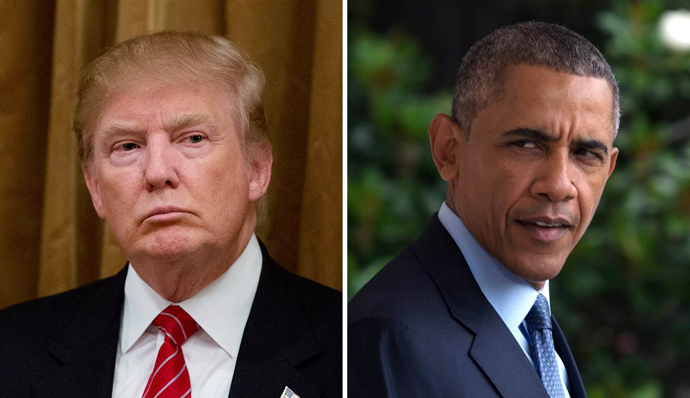Obama arrived into Office with a US burdened by the financial crisis deepening and expectations that matters may get worst, yet over the following 73 months, about 14.4 million new jobs were provided by the private sector, a record job growth rate, bringing unemployment from 10% to a current 5%. The US Budget deficit fell by $1.0tr over his 2 terms, and the US overall economic growth outpaced world leading economies and defined Obama’s economic Legacy.
The US still faces challenges of overseas competition and automation that will still need an innovative and flexible solution to the dynamic economy. There is no doubt that Trump is the most controversial US candidate running for Presidential election; his views are causing many arguments even within the American society. One of the most important issues that Trump is talking about is economy; specifically American economy and its relation to other countries.
Trump’s biggest claim is that he will bring back American jobs from China, Mexico, Japan and from so many other countries. Trump has proposed doing slapping tariffs on foreign goods and negotiating better trade deals. In his campaign, he threatened a 35% tax on Ford vehicles made in Mexico and brought back into the U.S. to be sold, and in 2011, he has made headlines for suggesting a 25% tariff on goods coming from China to the U.S.
He hasn’t said much about taxes so far in this campaign, yet, in his 2011 book, “Time to Get Tough,” he outlined a number of changes including eliminating the estate tax, ending the corporate income tax and lowering taxes on capital gains. He also suggested cutting income taxes for all Americans. His proposed top rate would be 15% (currently about 40%). Some experts say that the idea is relatively good, yet would add heavily to the federal debt. Trump has already bashed Washington policymakers for running up too much debt ! At face value, what Trump has proposed would start an immediate trade war that would likely hurt American jobs and exports.
Keep the minimum wage but not increase it, is another important point; Trump is one of the few Republicans in the 2016 field who isn’t skeptical of the usefulness of a federal minimum wage, but he doesn’t think it should be increased from the current rate of $7.25 an hour. Wages are a hot issue for many Americans. While the country has been adding jobs in the recovery, wages have barely moved. Trump argues that raising the minimum wage would make U.S. employees less competitive with foreign workers and thus make it harder to keep jobs in America. It is to be mentioned that in 2013, Trump floated the idea of two different minimum wages, one for teenagers and one for adults with families. The Congressional Budget Office, a nonpartisan research body of Congress, has said that raising the minimum wage to $10.10 an hour would likely cost half a million jobs, but it would also lift nearly a million Americans out of poverty. More recently, in 2011, he criticized Obama for not wanting to extend the Bush tax cuts, including those earning over $250,000.
It is worthy to mention that Trump’s fortune falls between $4.5bn and $10bn. Although born rich he managed to succeed in making a fortune, the question would be, is he capable of making Americans rich too? The result of the presidential election might soon find an answer to this question.


